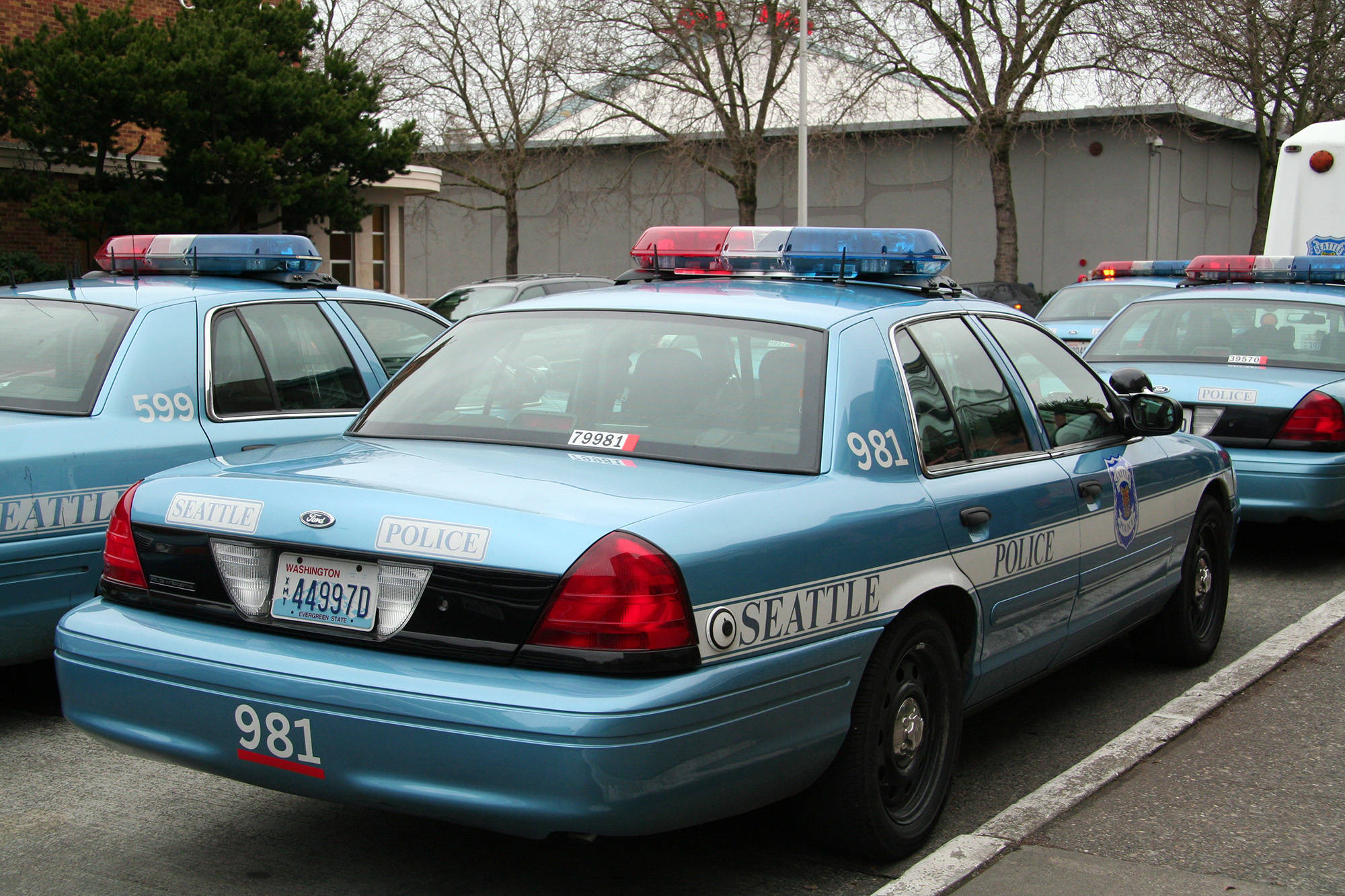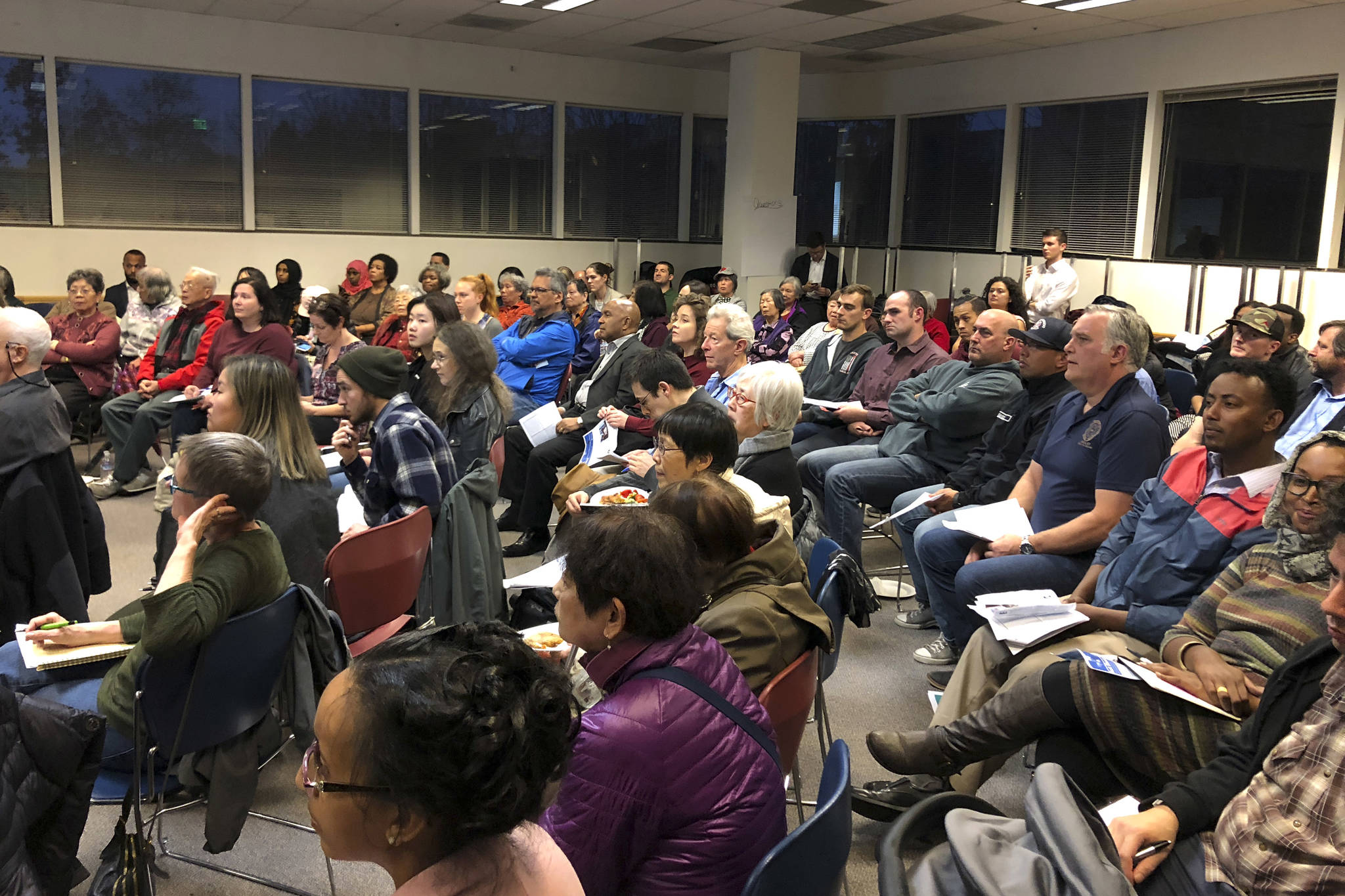As the Seattle City Council prepares for a Nov. 13 vote on the long-awaited police contract, parties who oppose and support the tentative agreement are urging councilmembers to heed their recommendations.
In a Nov. 8 letter to the City Council, two dozen community groups beseeched councilmembers to reject the city’s proposed contract with the Seattle Police Officer’s Guild (SPOG). In their letter, the groups’ complaints of a “flawed tentative agreement” were reminiscent of concerns that arose in police-accountability discussions spanning at least two decades. A few days later, Seattle Police Chief Carmen Best sent a missive to councilmembers recommending that they ratify SPOG’s agreement with haste.
“Police reforms can’t succeed without trust and confidence from the community,” Founder of Mothers for Police Accountability Rev. Harriet Walden, said in a press release. “As members of this community and participants in the police-reform process, we implore the Seattle City Council to hear our voices and heed our concerns.”
Last week’s letter from community members came a month after the Community Police Commission (CPC)—a group tasked with providing community input on police reforms—urged the City Council to reject the 100-page tentative agreement. During an Oct. 17 meeting, the CPC stated that language in the proposed contract contradicts a May 2017 ordinance designed to increase police accountability and transparency.
“I would like the CPC to be able to support this contract because among other things, the men and women who work for the police department deserve a contract. They deserve a fair wage. They deserve this chapter to be over,” Lisa Daugaard, a CPC commissioner and director of the Public Defender Association, said during the Oct. 17 CPC meeting. SPOG has operated without a contract since the previous one expired in 2014. If approved by the City Council, the proposed contract would be retroactively effective on Jan. 1, 2015 and expire on Dec. 31, 2020.
In the eyes of community members and the CPC, the proposed contract diverged from the ordinance in its inclusion of additional methods for police to appeal disciplinary action. The ordinance declared one avenue for police to contest discipline through an impartial three-member body with open meetings, while the tentative agreement would also allow officers the option of appealing disciplinary action through closed hearings held by arbitrators.
The Nov. 8 letter from community groups also takes issue with the tentative agreement’s timeline for police-misconduct investigations: The ordinance allows for an officer to be disciplined if an investigation takes longer than 180 days, while the proposed contract states that discipline is not permitted after the investigation deadline, “except in cases where the employee is physically or medically unavailable to participate in the internal investigation.”
This is not the first time community members have spoken out against the police union’s negotiations with the city. In 2003, the ACLU and members of the public testified in a City Council hearing that the collective-bargaining agreement process jeopardized police accountability. “From the vantage point of almost two decades of observation, and countless meetings with local officials and their staff, the single most important overriding message I would like to leave with you is the following: ‘Stop the giveaways.’ By this I mean the City should stop giving away in the collective-bargaining process the public’s ability to establish a stronger and more effective police-accountability system,” ACLU of Washington former Legal Program Director Julya Hampton said in her in 2003 testimony. Her complaints included the limitations on the 180-day timeline for police-misconduct investigations, which 15 years later continues to concern the ACLU and other community groups.
While community groups implored City Councilmembers to prioritize police accountability, Police Chief Best sought to remind the elected officials that police have operated without wage increases for four years. On Nov.12, she sent a letter to City Council President Bruce Harrell and Councilmember Lorena González urging them to pass the tentative agreement in order to prevent more officers from leaving the force. “Most importantly, our current officers and any officers we recruit are committed to reform. Absolutely nothing in the proposed labor agreement pulls this Department back from the path of continuous reform. This department knows that there is no “end goal” for reform—as the needs of our communities change, as the demands for police services shift, reform is a continuing process of critical self-analysis, review, and drive towards improvement,” Best wrote in the letter. “This is both a process and a commitment that the Seattle Police Department has solidly demonstrated and will continue to embrace.”
mhellmann@seattleweekly.com









